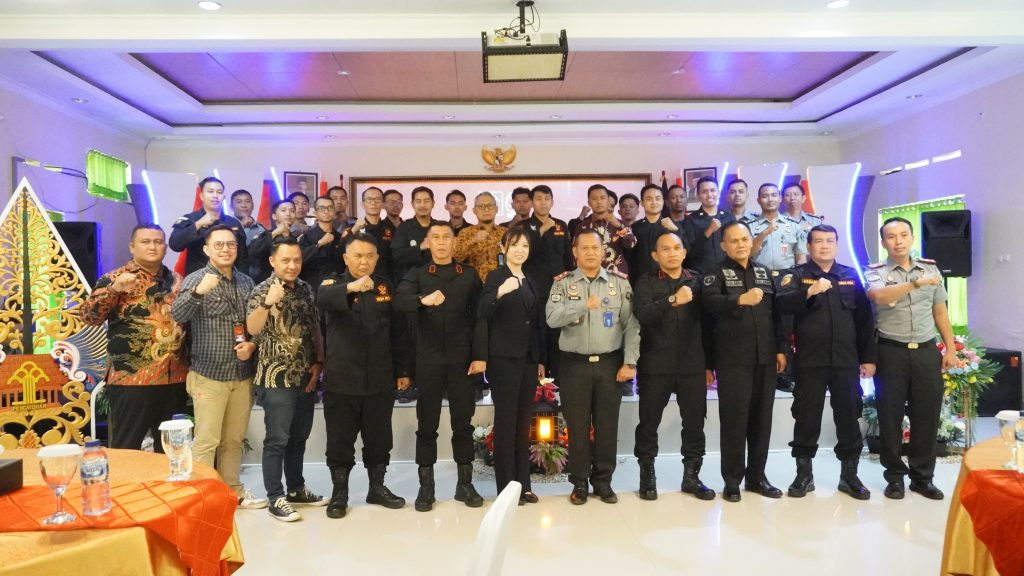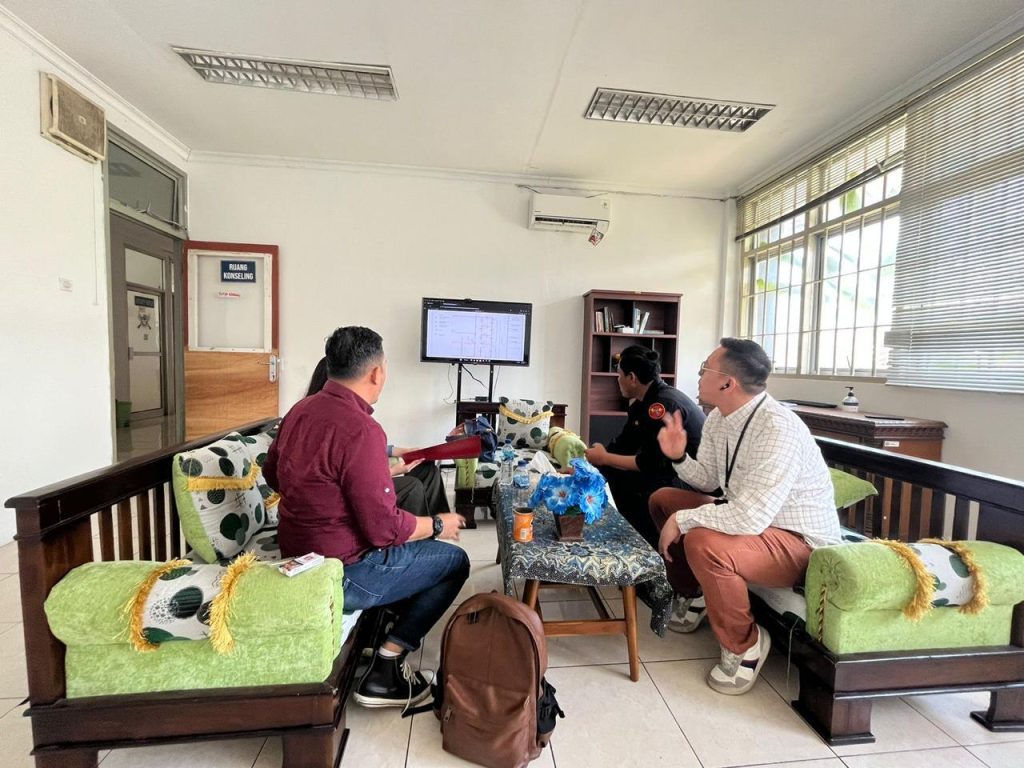December 25, 2023

Although Indonesia is not currently in the midst of a conflict, non-state armed groups operate underground, and the threat of terrorism remains. Since around 2010, so-called violent extremist organizations have been cracked down on by local governments and police authorities, and their influence has dwindled. However, recruitment activities are still taking place in mosques, schools, and on social media, and there are cases where young people become radicalized. There have also been reported cases where, after release from prison, inmates face discrimination from local residents as “former combatants of non-state armed groups,” becoming isolated from society and rejoining the so-called violent extremist organizations.
Against this background, we are conducting educational and awareness-raising activities to prevent the radicalization of young people, and providing comprehensive support to prison inmates and individuals formerly engaged with non-state armed groups after their release, to help them break away from extremist ideas and reintegrate into society.
This time, we will report on the activities that were carried out as part of these efforts, including training for prison officers and probation officers in charge of providing support to inmates who have participated in armed conflict, coordination for the launch of a new project at a maximum security prison, and interviews with young people who have experience with armed groups, as part of efforts to establish international norms.
Capacity building training to improve the communication skills of prison officers and probation officers
On Nusakambangan Island in Central Java, Indonesia, we conducted training for 44 prison officers and probation officers in charge of supporting the correction and rehabilitation of inmates, with the aim of improving the communication skills necessary when counseling inmates.
Within the prison, inmates were developing resentment and hatred toward prison officers and probation officers who had ties to the government, and the lack of relationship-building and dialogue necessary for counseling was a challenge. The inability to provide proper counseling made it more difficult for inmates to break away from extremist ideas, so there was a need to improve communication skills.
To that end, we shared with prison officers the counseling methods we use in conflict zones such as Somalia that emphasize caring for inmates, as well as the dialogue skills necessary for this practice. In specific counseling, it is important to respect the background and thoughts that led inmates to join non-state armed groups and build relationships by “accepting” them. We also shared our goal of redefining their identities through dialogue and realizing their thoughts and feelings through non-violent means.
Through this initiative, we aim to create an environment where inmates can return to society as agents of peace, rather than relying on violence, by encouraging relationships and dialogue between inmates and prison officers/probation officers and providing appropriate counseling.
 ▲Hybrid training to improve communication skills for prison officers and probation officers
▲Hybrid training to improve communication skills for prison officers and probation officers
Discussions to launch new initiatives at maximum security prisons
We held discussions with maximum security prison officials and local governments to gain access to high-risk inmates, who are difficult for international NGOs and other organizations to reach, and to expand support for them.
Currently, the only people high-risk inmates can interact with in prisons are prison officers and probation officers. This means they have no trusted community or contact with others, and the values they are exposed to are limited, which can lead to a situation where their extremist views become even stronger. To improve this situation, we proposed the following two new activities and have been able to reach verbal agreement with the prison authorities to implement them.
1) Introduction of “exchange diary/letter” system to become partners in daily communication with inmates
2) Implementing “writing instruction” to encourage inmates to self-reflect and understand others, with the aim of bringing about internal change within them.<
These activities allow inmates to come into contact with diverse values and different ways of thinking, and to build relationships with Japanese people, which has given them an opportunity to reflect on their own way of thinking and inner self, and to reexamine their identity. The prison administration has given this a high rating. We will accelerate this initiative in order to create a system that will enable those who have joined non-state armed groups to change themselves and become agents of peace.
 ▲A meeting to prepare for the launch of a new project
▲A meeting to prepare for the launch of a new project
Future outlook
Going forward, we will further strengthen our collaboration with local institutions, including the maximum security prison, and in addition to the approaches we have developed so far, we will develop new initiatives such as diary exchanges and letter writing guidance for inmates, mainly young people, in prison, in order to support them so that they can live as agents of peace rather than relying on violence.
We hope you will continue to give us your warm support and encouragement as we work towards realizing a world free of terrorism and conflict.
Activity Reports










